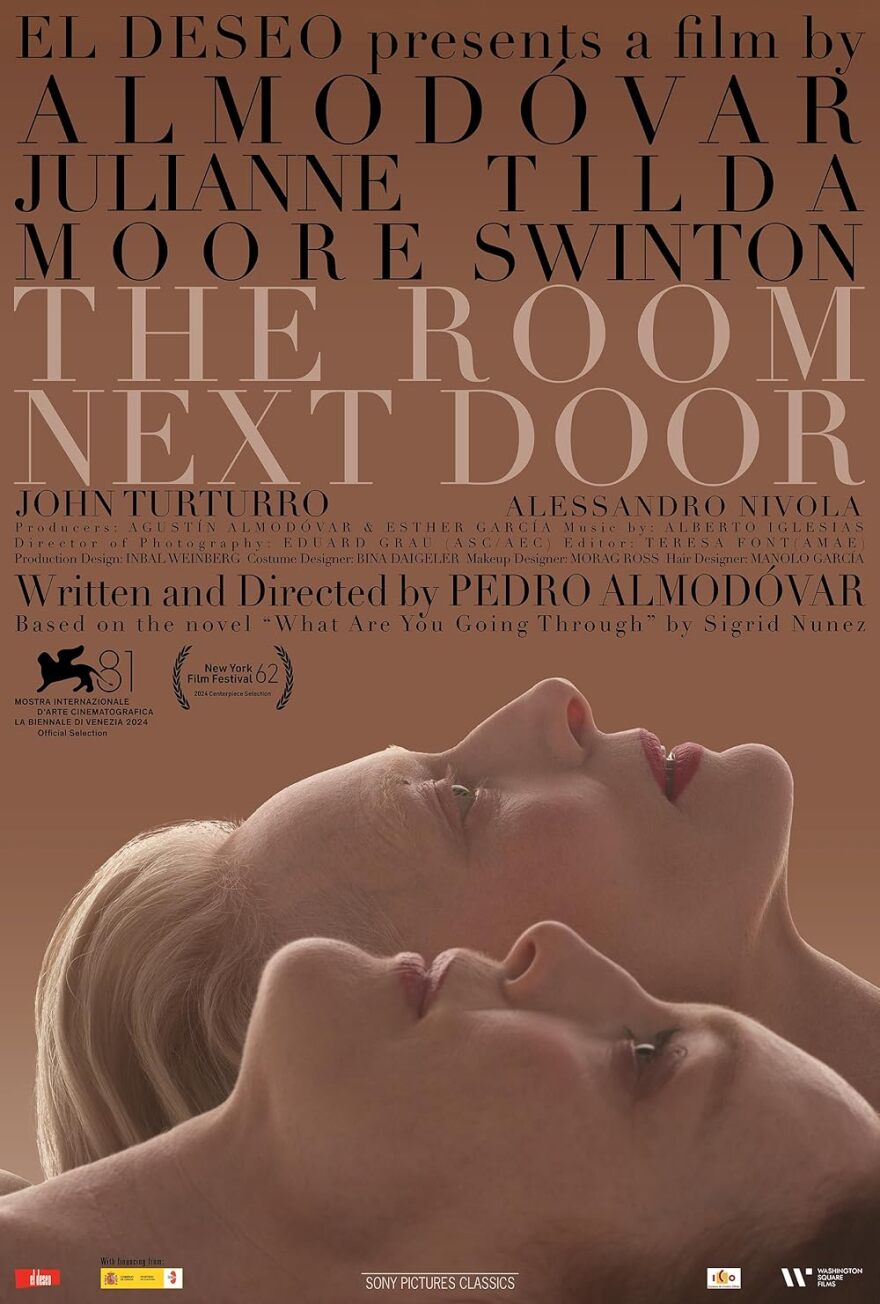
From master filmmaker Pedro Almodóvar comes The Room Next Door, a tender and deeply resonant melodrama that explores the right to a quality life, the inevitability of death, the complexities of aging, and the profound connections with those who leave a lasting impact on us.
The film stars Julianne Moore as Ingrid, a celebrated writer who has built her career on dissecting the fear of death—a fear she knows intimately. When Ingrid learns that her estranged friend and former colleague Margaret, played by Tilda Swinton, is undergoing chemotherapy for cervical cancer, she reluctantly reaches out to reconnect. Their reunion sparks a poignant and deeply emotional story, as Margaret makes a staggering request of Ingrid—one that forces both women to confront their opposing views on fighting for life versus accepting the inevitability of death and avoiding unnecessary suffering.
Initially, I found the film’s dialogue strikingly blunt, almost jarring, as characters seemed to articulate their thoughts in ways that felt like pure exposition. However, as the narrative unfolded, I realized that Almodóvar was intentionally channeling the heightened emotionality of classic 1940s and 1950s melodramas, particularly those of Douglas Sirk. Once I embraced this stylized approach, I was pulled in by the interplay between two powerhouse actors and the richly layered world Almodóvar creates, one filled with breathtaking views and intricate architecture.
The Room Next Door does more than nod to Sirk’s legacy—it fully embraces his signature elements, including lush cinematography, a vibrant color palette, and the emotional resonance of natural phenomena, crafting a poetic and immersive narrative. Nature itself becomes a vital character, mirroring and soothing the inner turmoil of Ingrid and Margaret while reminding the audience of life’s impermanence and fragility. A particularly poignant motif throughout the film is the dialectic between the characters’ enclosed spaces and nature’s persistent presence—whether through sounds, glimpses through a window, or the landscapes just beyond their reach. This dynamic underscores the idea that, no matter how much shelter we construct, we remain small in the grand scheme of life. As Ingrid reflects on her friend, she poignantly quotes a James Joyce short story that Margaret loved: “…as the snow falls on the pool we never use… as the snow falls on the living and the dead.”










